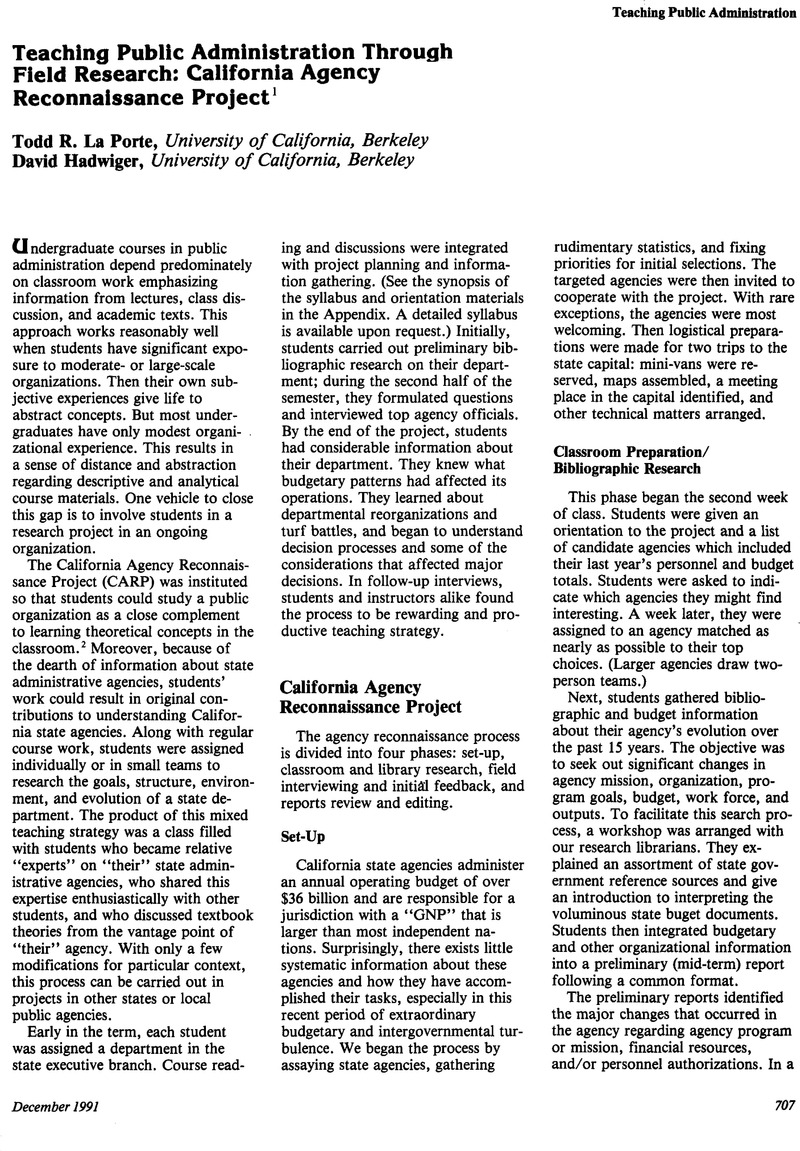Article contents
Teaching Public Administration Through Field Research: California Agency Reconnaissance Project
Published online by Cambridge University Press: 02 September 2013
Abstract

- Type
- The Teacher
- Information
- Copyright
- Copyright © The American Political Science Association 1991
Footnotes
This article is a shortened version of a paper presented at the 13th National Conference on the Teaching of Public Administration, Arizona State University, Tempe, Arizona, February 15–17, 1990. That paper included the research and data format guides used in the project and a list of agencies studied. If these are of interest please contact the senior author. Steven Stehr assisted effectively as original field supervisor in the development of this project. The authors gratefully acknowledge the University's Institute of Governmental Studies and Committee on Educational Development whose support was crucial in enabling this project to flower.
References
Notes
2. The CARP process has been repeated four times—spring and fall, 1984, and spring, 1987 and 1990. The process was also used in an Administrative Behavior class, in 1990, for a reconnaissance of public or public service organizations that responded to the October 1989 San Francisco earthquake, and, again in 1991, on the complex infrastructure organizations of this university the equivalent of the city government in a city of some 45,000 citizens.
3. The material informed the second of the two debates held in class. The first resolved that: “Administrative decisions can and should be shared among executives, middle level managers, and union representatives”; and the second that “The problem of accountability is largely solved. Professionals are competent, executive control budgetary and personnel systems, and the legislature speak for citizens.” Each debate divided the students up into different contending roles—politically appointed executives, career bureaucrats of the middle level, unionized workers, and representative of the agency's clientele.
- 1
- Cited by




